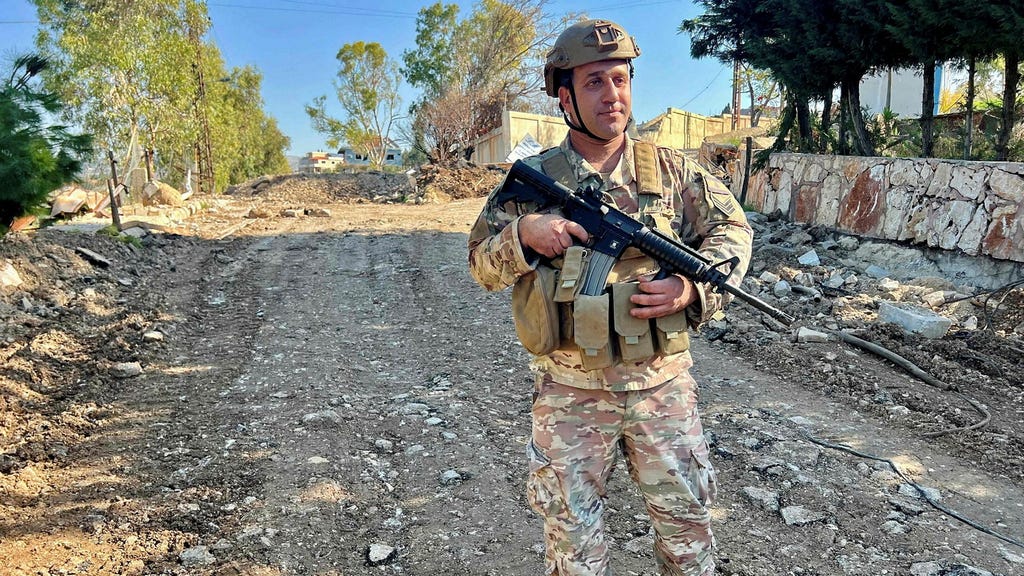The recent report by the Lebanese newspaper, al-Akhbar, regarding a purported US promise to Lebanon’s President-elect, Joseph Aoun, concerning Israeli withdrawal from Southern Lebanon has sparked considerable interest and speculation. The report, attributed to sources within Hezbollah, claims the US assured Aoun of Israel’s complete withdrawal by January 26th. This assertion, if true, carries significant implications for the complex geopolitical landscape of the region, impacting the delicate balance of power and potentially reshaping the future of Lebanese-Israeli relations. A deeper examination of this claim requires careful consideration of the various actors involved, their motivations, and the historical context of the conflict.
The timing of this alleged promise coincides with the ongoing political transition in Lebanon, with Joseph Aoun recently elected as President. Securing a promise of Israeli withdrawal could be viewed as a significant political victory for Aoun, bolstering his legitimacy and strengthening his position domestically. Such a move could also contribute to stability within Lebanon, potentially diminishing the influence of Hezbollah, a powerful non-state actor that has historically justified its armed presence by citing the Israeli occupation of Southern Lebanon. However, the veracity of al-Akhbar’s report remains unconfirmed, and the supposed US guarantee raises questions about the extent of American influence over Israeli policy, particularly concerning such a sensitive security issue.
Israel’s perspective on this reported agreement is crucial. While Israel officially ended its occupation of Southern Lebanon in 2000, it maintains a presence in the disputed Shebaa Farms area, a small strip of land at the intersection of the Lebanese, Syrian, and Israeli borders. This area remains a point of contention, with both Lebanon and Hezbollah claiming it as Lebanese territory. An Israeli withdrawal from Shebaa Farms, as implied by al-Akhbar’s report, would represent a significant concession and potentially alter the strategic dynamics in the region. It could also influence Hezbollah’s calculus, potentially leading to a de-escalation of tensions along the Lebanese-Israeli border. However, it is equally plausible that Israel might view such a withdrawal as a sign of weakness, potentially emboldening Hezbollah and other regional actors.
Hezbollah’s involvement in disseminating this report adds another layer of complexity. Al-Akhbar, often viewed as a mouthpiece for Hezbollah, has a vested interest in portraying the US and Israel as making concessions. This narrative serves to reinforce Hezbollah’s image as a defender of Lebanon’s sovereignty and strengthens its position within the Lebanese political landscape. Furthermore, by highlighting a potential Israeli withdrawal, Hezbollah could be attempting to claim credit for the development, further solidifying its role as a key player in regional affairs. However, it is also important to consider the possibility that Hezbollah might be using this report as a form of psychological warfare, aiming to pressure Israel and test the resolve of the new Lebanese government.
The role of the United States in this alleged agreement is equally intriguing. The US has historically played a mediating role in the Lebanese-Israeli conflict, and a guarantee of Israeli withdrawal could be seen as a continuation of this diplomatic effort. Such a move could align with US interests in promoting stability in the region and reducing the risk of further conflict. However, the reported timeframe of January 26th appears remarkably short, raising questions about the feasibility of such a rapid withdrawal, particularly given the complex logistical and security considerations involved. Furthermore, a public US guarantee could put pressure on Israel and potentially undermine the delicate negotiations surrounding the disputed territories.
In conclusion, the report by al-Akhbar concerning a US promise to Lebanon regarding Israeli withdrawal from Southern Lebanon raises a multitude of questions and warrants cautious analysis. While the prospect of an Israeli withdrawal carries significant implications for regional stability and the dynamics between Lebanon and Israel, the veracity of the report remains unverified. The motivations of the various actors involved, including the newly elected Lebanese president, Hezbollah, Israel, and the United States, must be carefully considered. The coming weeks and months will be crucial in determining the accuracy of this report and its potential impact on the volatile and complex geopolitical landscape of the Middle East. It is essential to approach such reports with skepticism, recognizing the potential for misinformation and the complex interplay of interests at play in this strategically important region. The future trajectory of Lebanese-Israeli relations, and the broader regional stability, hinges on the actions and decisions of these key players in the coming period.














